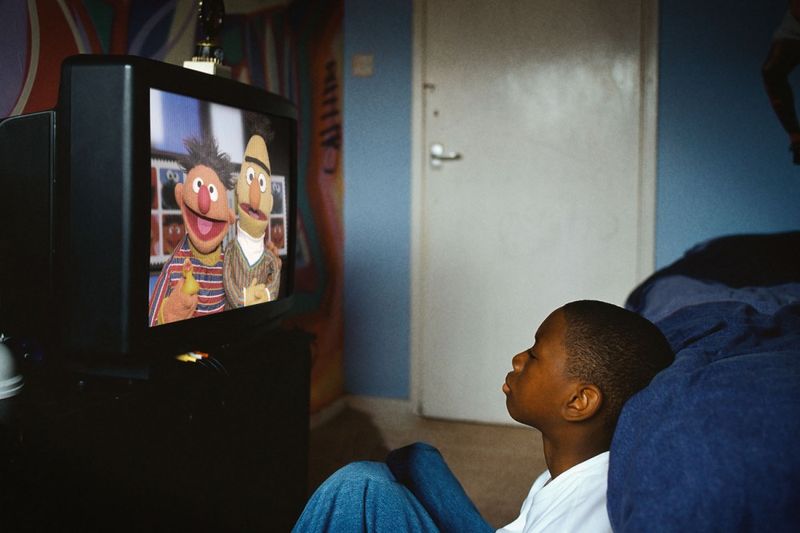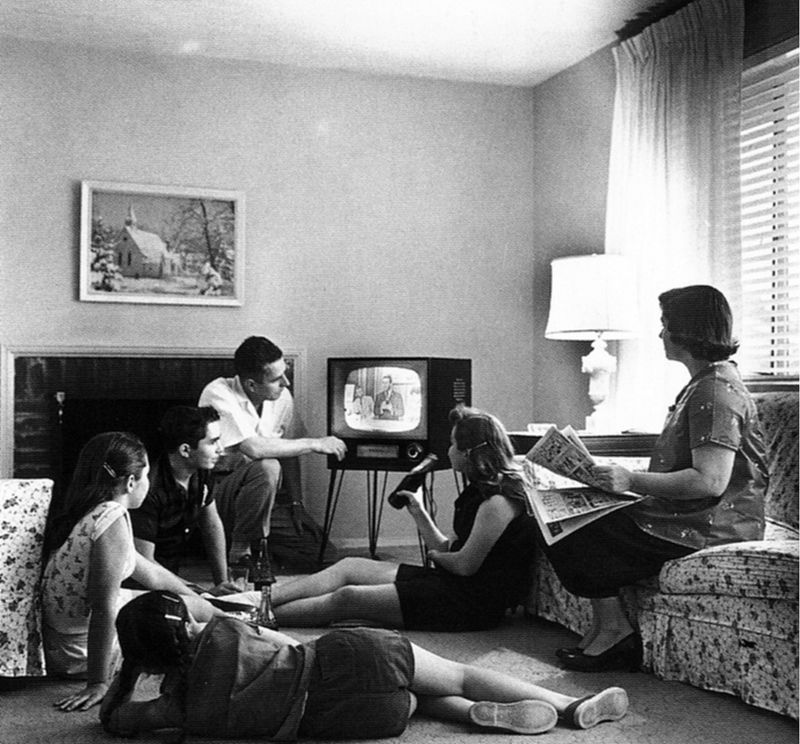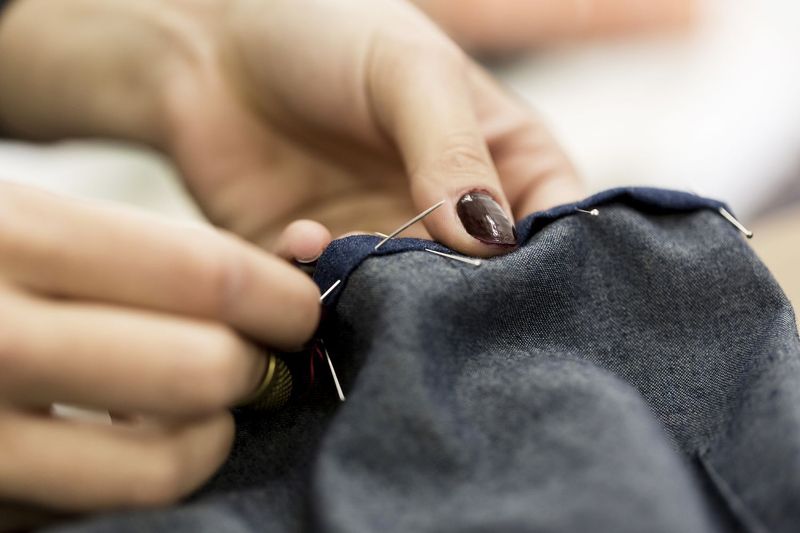25 Unwritten Rules Boomers Grew Up Knowing And 5 We Need To Bring Back

Growing up, it felt like everyone just knew the rules — not the ones written down in school handbooks, but the unspoken ones that shaped how we treated each other.
These unwritten codes of conduct were like invisible guidelines passed down through glances, life lessons, and the occasional stern “Because I said so.” In the Boomer era, these rules taught respect, responsibility, and how to survive a weekend with no TV remote.
Sure, some of them might seem a little old-school now, but honestly? A lot of them hold up. In a world that’s become a bit too fast and a little too disconnected, revisiting these time-tested principles might just be what we need.
So let’s take a thoughtful — and sometimes humorous — look at 25 unwritten rules from the Boomer era that are worth remembering… and maybe even reviving. Get ready for some serious nostalgia and a few “Yep, that’s so true” moments!
1. If the streetlights come on, it’s time to go home.

As kids, the streetlights were our unofficial curfew. When the lights flickered to life, it was our signal to wrap up the day’s adventures and head home. No excuses, no negotiations — just a simple understanding that home was where we needed to be.
This rule not only kept us safe but also taught us the importance of time management. It was a natural part of our daily rhythm, something we didn’t question. Today’s generation might benefit from a little less screen time and a bit more outdoor play, with a streetlight curfew to guide them.
It’s a simple yet effective way of instilling a sense of responsibility and awareness of the world around them. So let’s remember the magic of a gentle reminder from above, signaling it’s time to hit the road and head back to the nest.
2. Don’t you dare sit in Dad’s chair.

Ah, the iconic recliner — Dad’s throne. It was more than just a piece of furniture; it was a sacred space. Sitting in Dad’s chair without permission was akin to committing a small act of treason. The chair had a gravitational pull, drawing us in with its promise of comfort yet reminding us of the unspoken hierarchy within the household.
This rule taught us respect for personal spaces and boundaries, a lesson that resonates beyond the living room. By honoring Dad’s chair, we acknowledged his hard work and the comfort it symbolized after a long day.
Modern homes might lack a designated “Dad’s chair,” but respecting personal spaces remains timeless. It’s a gentle reminder of the importance of recognizing and respecting each other’s territories, even in shared spaces. Let’s bring back the reverence for special spots that hold meaning and memories.
3. If someone calls your house phone, you answer like a professional.

Remember the days of answering the phone with a formal “Hello, [last name] residence”? It was our first lesson in telephone etiquette. Answering the house phone professionally taught us the value of first impressions. There was a certain charm in hearing a young voice articulate a greeting with poise and clarity.
In an era where communication often feels impersonal, reviving this practice could add a touch of formality and respect back into our interactions. Today, our phones are often glued to our hands, and the art of a well-mannered greeting seems lost.
By returning to a more courteous approach, we could inject a dose of warmth and sincerity into our daily communications. It’s not just about tradition; it’s about fostering respect and connection in our rapidly evolving digital world.
4. Don’t even think about touching the thermostat.

Ah, the legendary thermostat — a device that holds an almost mythical status in many households. Adjusting it without consent was practically a federal offense. It taught us the importance of energy conservation and the delicate balance of household environments. This unwritten rule instilled a sense of respect for shared spaces and resources.
Today, as we navigate modern living, the lesson of mindful consumption remains relevant. Whether it’s the thermostat, the air conditioning, or even the lighting, being conscious of energy usage is a responsibility we all share.
So let’s not forget the wisdom behind this rule — it’s not just about comfort, but about caring for the planet and future generations. A little mindfulness can go a long way, keeping both our homes and the earth in harmony.
5. You eat what’s on your plate – or you sit there ‘til you do.

The dinner table was a battleground where the rule of “you eat what’s on your plate” reigned supreme. Brussels sprouts? Suffer through it, kid. This rule taught us gratitude and the importance of not wasting food.
It also encouraged us to try new things, even if they weren’t our favorites. In today’s world of abundance, appreciating what we have on our plates is a lesson worth revisiting. The act of finishing a meal, despite not loving every bite, instilled discipline and resilience.
It’s a reminder that sometimes, we need to face things we don’t necessarily like to appreciate the things we do. So let’s bring back this rule, not just for the sake of nostalgia, but to teach future generations the value of food and the effort that goes into preparing it.
6. Saturday mornings = cartoons + sugary cereal.

Saturday mornings were a sacred ritual — a combination of cartoons and sugary cereal that felt like a weekly holiday. It was a time for us to unwind and enjoy a few hours of pure entertainment bliss. The magic of this unwritten rule lay in its simplicity.
As adults, we may reminisce about those mornings with a sense of nostalgia, recognizing the joy that came from such a simple tradition. Today, with endless entertainment options, taking time to enjoy a leisurely morning ritual could offer a much-needed pause in our hectic lives.
Let’s revive the joy of dedicating time to pure, unadulterated fun, to recharge and refresh for the week ahead. After all, a spoonful of sugar and a splash of nostalgia make everything nice.
7. Always rewind the VHS tape before returning it.

Who could forget the iconic “Be Kind, Rewind” sticker plastered on VHS tapes? Rewinding the tape before returning it was a small act of courtesy that spoke volumes. It taught us about consideration for others and the joy of leaving things better than we found them.
In today’s world, where digital media has replaced physical tapes, the principle remains relevant. By practicing small acts of kindness and consideration, we enhance the experiences of those around us.
Whether it’s rewinding a VHS or leaving a clean workspace, these gestures create a ripple effect of goodwill. Let’s bring back the spirit of “Be Kind, Rewind” in our modern lives, reminding ourselves that even small actions can make a big difference in building a respectful and thoughtful community.
8. You break it, you bought it.

The unwritten rule of “you break it, you bought it” was a lesson in accountability. It taught us to handle things with care and to accept responsibility for our actions. In a world where things can feel disposable, this rule reminded us of the value and fragility of items around us.
Whether in a store or at a friend’s house, we learned to be cautious and respectful. Today, as we navigate an increasingly digital and disposable culture, the lesson of accountability remains crucial.
By acknowledging our role in maintaining and respecting possessions, we foster a sense of responsibility that extends beyond objects to our relationships and environment. Let’s revive this rule to teach future generations the importance of handling things, and situations, with care and consideration.
9. Don’t talk back to adults.

Talking back to adults was a surefire way to find yourself in hot water. It was a lesson in respect and understanding the boundaries of authority. This unwritten rule emphasized the importance of listening and valuing the wisdom of those older than us.
While today’s world encourages open dialogue, the core idea of respecting different perspectives remains vital. By balancing respectful communication with assertiveness, we can foster healthy relationships across generations.
This isn’t about silencing voices but encouraging thoughtful dialogue and mutual respect. Let’s bring back the essence of this rule — appreciating the insights and experiences shared by those who have walked the path before us. It’s about creating a space where young and old can learn from each other, fostering a community built on mutual respect and understanding.
10. Keep your elbows off the table.

“Keep your elbows off the table” was a mantra drilled into us at every meal. It was more than just etiquette; it was a lesson in discipline and respect for shared spaces. This rule taught us the importance of maintaining good manners and presenting ourselves with grace.
In a world where casual dining often blurs the lines of traditional etiquette, the lesson of mindful eating remains relevant. By practicing good manners, we enhance our social interactions and create a pleasant dining experience for everyone.
Let’s bring back this rule as a reminder that small gestures of respect and consideration can make a big difference in how we connect with others. It’s about cultivating an atmosphere of respect, where everyone feels valued and acknowledged.
11. Play outside until you’re called in.

Playing outside until called in was an unspoken rule that fueled our imagination and sense of adventure. It encouraged us to explore, create, and engage with the world around us. This freedom taught us independence and problem-solving skills that are often overshadowed by today’s digital distractions.
The lesson of outdoor play remains crucial in nurturing creativity and resilience in children. By stepping away from screens and into nature, we reconnect with the simple joys of exploration and discovery.
Let’s revive the spirit of this rule, encouraging future generations to embrace the outdoors and the endless possibilities it offers. It’s about fostering a sense of wonder and curiosity that can’t be found within the confines of a digital screen. So let’s get outside, get moving, and let our imaginations run wild.
12. Respect your elders.

Respecting our elders was a cornerstone of social interactions. It taught us the value of wisdom and experience, recognizing the contributions of those who came before us. This unwritten rule emphasized the importance of honoring the knowledge and guidance offered by older generations.
In today’s fast-paced world, where youth culture often dominates, the lesson of respecting elders remains essential. By valuing their insights, we create a bridge between generations that fosters understanding and empathy. Let’s bring back this rule as a reminder to appreciate the wisdom and stories shared by our elders.
It’s about building a community that honors the past while embracing the future, creating a space where everyone feels valued and heard. Respect isn’t just an old-fashioned notion — it’s a timeless principle that strengthens our social fabric.
13. You call adults “Mr.” or “Mrs.” – not by their first name.

Addressing adults with titles like “Mr.” or “Mrs.” was a sign of respect and recognition of authority. It was a lesson in acknowledging the roles and positions held by those older than us. This unwritten rule taught us the importance of respectful communication and the nuances of social hierarchy. Today, as social norms evolve and become more informal, the principle of respectful address remains significant.
By maintaining a level of formality, we demonstrate appreciation and acknowledgment of others. Let’s bring back this rule as a reminder to approach interactions with respect and consideration.
It’s not just about tradition; it’s about fostering an environment where everyone feels respected and valued. So let’s embrace the power of a well-placed title, reinforcing the importance of reverence in our daily interactions.
14. Sharing wasn’t optional – it was expected.

Sharing was a fundamental lesson instilled in us from a young age. It taught us about generosity and the joy of giving. Whether it was a toy or a treat, sharing was an expectation, not an option. This unwritten rule emphasized the importance of community and connection.
In today’s individualistic society, the lesson of sharing remains crucial in building empathy and collaboration. By encouraging a culture of sharing, we create a supportive and inclusive environment. Let’s bring back this rule as a reminder that generosity and kindness are the foundations of strong communities.
It’s about recognizing that, while possessions may be personal, the joy they bring is often magnified when shared with others. So let’s keep the spirit of sharing alive, fostering a world where giving is celebrated and valued.
15. TV was a family event, not background noise.

Gathering around the TV was a cherished family ritual, not just a background distraction. It was a time to connect and share experiences, turning ordinary evenings into memorable moments. This unwritten rule taught us the value of quality time and shared entertainment.
In a world where screens often isolate us, the lesson of family TV time remains relevant. By making entertainment a shared experience, we strengthen our bonds and create lasting memories.
Let’s bring back this rule as a reminder to prioritize connection and togetherness in our digital age. It’s about transforming screen time into an opportunity for engagement and laughter, reminding us that the best shows are those enjoyed with loved ones by our side.
16. You don’t tattle – you handle it yourself.

The unwritten rule of not tattling encouraged us to handle conflicts independently. It taught us problem-solving skills and the importance of resolving issues without unnecessary intervention. This rule emphasized the value of self-reliance and communication. In today’s world, where over-dependence on external solutions can be common, the lesson of handling things yourself remains crucial.
By fostering independence and personal responsibility, we empower ourselves to navigate challenges with confidence.
Let’s bring back this rule as a reminder that while seeking help is sometimes necessary, learning to handle situations independently is equally important. It’s about building resilience and self-assurance, nurturing a generation that can stand strong and face the world with courage.
17. Mind your own business.

“Mind your own business” was an unwritten rule that taught us the value of respecting privacy and boundaries. It emphasized the importance of focusing on our own tasks and not meddling in others’ affairs. This rule encouraged discretion and the understanding that not everything requires our input.
In today’s hyper-connected world, where oversharing is common, the lesson of minding our own business remains relevant. By respecting others’ privacy, we create an environment of trust and respect. Let’s bring back this rule as a reminder to prioritize boundaries and personal space.
It’s about recognizing that sometimes, the best way to support others is by allowing them the space to navigate their own journeys. A little privacy goes a long way in nurturing healthy relationships and communities.
18. You dress up for church, school pictures, and flights.

Dressing up for church, school pictures, and flights was about more than just appearances — it was about respect and occasion. This unwritten rule taught us the importance of presenting ourselves with care and recognizing the significance of certain events.
In today’s casual culture, the lesson of dressing up remains valuable in reminding us to honor special moments. By putting thought into our attire, we demonstrate respect for the experience and those involved. Let’s bring back this rule as a reminder that how we present ourselves reflects our values and appreciation for the occasion.
It’s about embracing the joy of looking our best and celebrating life’s milestones with style and grace. So let’s dust off those fancy outfits and step out with confidence, ready to make every moment memorable.
19. Phone calls had a time limit.

Phone calls with a time limit taught us the value of sharing resources and respecting others’ needs. It was an unwritten rule that ensured everyone had a chance to use the line, emphasizing the importance of fair use.
In today’s world, where personal devices offer unlimited access, the lesson of mindful communication remains relevant. By being considerate of others’ time and space, we foster an environment of respect and collaboration. Let’s bring back this rule as a reminder that communication should be thoughtful and inclusive.
It’s about recognizing that while technology offers convenience, it also requires responsibility. So let’s embrace the principle of balance in our conversations, ensuring that everyone gets their turn to connect and communicate.
20. If you wanted to see someone, you showed up at their house.

Showing up at a friend’s house was the ultimate way to connect and spend time together. This unwritten rule emphasized the importance of face-to-face interactions and spontaneous adventures. It taught us the value of direct communication and building connections in person.
In today’s reality, where digital interactions often replace physical ones, the lesson of showing up remains significant. By prioritizing personal interactions, we create deeper, more meaningful relationships. Let’s bring back this rule as a reminder to embrace the joy of spontaneity and connection.
It’s about rediscovering the magic of a knock on the door and a shared adventure, creating memories that no screen can replicate.
21. Respecting personal space and boundaries.

Respecting personal space and boundaries was an essential lesson that emphasized the importance of autonomy and respect for others. This unwritten rule taught us the value of recognizing and honoring individual limits.
In today’s interconnected world, where boundaries can often feel blurred, the lesson of personal space remains crucial. By respecting others’ boundaries, we create an environment of trust and safety. Let’s bring back this rule as a reminder that not everything needs to be shared or commented on.
It’s about recognizing the importance of privacy and fostering an atmosphere of mutual respect and understanding. Personal space isn’t just a physical concept — it’s a fundamental principle that nurtures healthy relationships and community well-being.
22. Looking people in the eye when talking.

Making eye contact during conversations was a sign of respect and engagement. It taught us the value of being present and attentive, acknowledging the person we were speaking with. This unwritten rule emphasized the importance of connection and sincerity.
In today’s digital world, where eye contact can often be overlooked, the lesson of genuine interaction remains vital. By looking people in the eye, we convey confidence and respect, strengthening our communication.
Let’s bring back this rule as a reminder to prioritize meaningful interactions and build strong relationships. It’s about fostering a culture of connection, where everyone feels seen and heard. So let’s embrace the power of eye contact, reinforcing the importance of genuine engagement in our daily lives.
23. Fix it before you replace it.

The principle of “fix it before you replace it” was a lesson in resourcefulness and sustainability. It taught us to value what we have and explore solutions before resorting to replacement. This unwritten rule emphasized the importance of conservation and creativity.
In today’s throwaway culture, where convenience often trumps durability, the lesson of fixing things remains crucial. By repairing instead of replacing, we reduce waste and extend the life of our possessions. Let’s bring back this rule as a reminder to embrace sustainability and resourcefulness.
It’s about recognizing the value of what we have and the impact of our choices on the environment. So let’s roll up our sleeves and get creative, finding solutions that respect both our belongings and our planet.
24. Waiting your turn without complaining.

Waiting your turn without complaining taught us the value of patience and respect for others. This unwritten rule emphasized the importance of fairness and consideration in shared spaces.
In today’s fast-paced world, where instant gratification is often the norm, the lesson of patience remains significant. By waiting our turn, we demonstrate respect for others and contribute to a harmonious environment.
Let’s bring back this rule as a reminder that patience is a virtue worth cultivating. It’s about recognizing that good things often come to those who wait, and that respect and consideration enhance our shared experiences. So let’s embrace the art of waiting gracefully, fostering a culture of patience and understanding in our daily interactions.
25. Community matters.

The principle that “community matters” was a foundational lesson that taught us the value of connection and collaboration. This unwritten rule emphasized the importance of knowing our neighbors and contributing to a supportive environment.
In today’s world, where individualism often takes precedence, the lesson of community remains essential. By fostering connections and lending a hand, we create a network of support and friendship. Let’s bring back this rule as a reminder of the power of community in enriching our lives.
It’s about recognizing that we are stronger together, and that by building a sense of belonging, we enhance our well-being and happiness. So let’s celebrate the spirit of community, nurturing environments where everyone feels welcome and valued.
